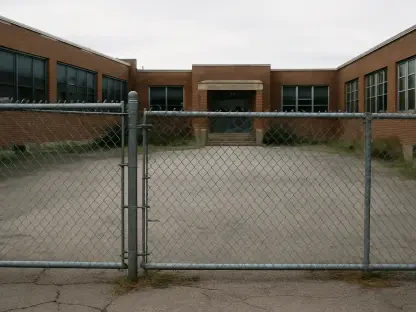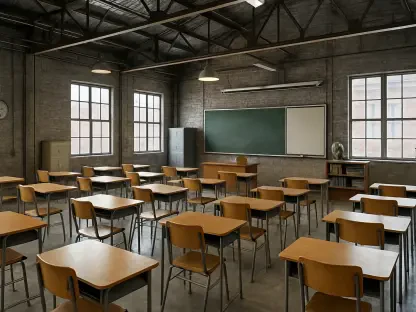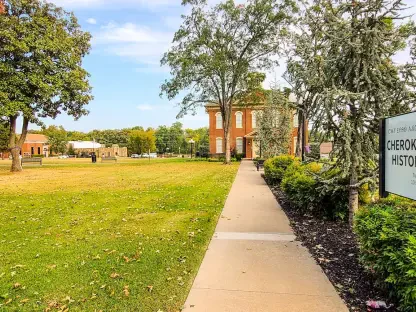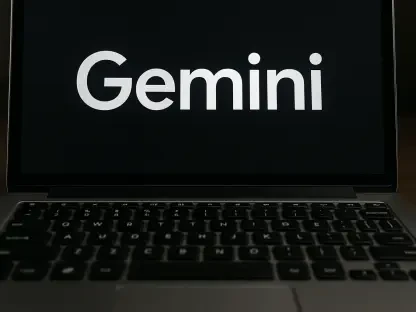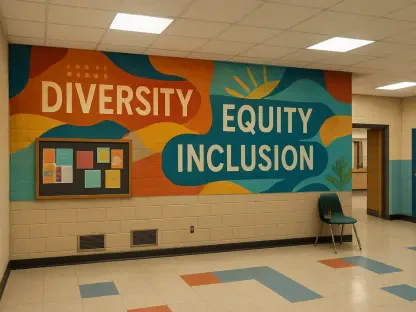Saint Augustine’s University, a historically Black college, is under intense scrutiny as it attempts to secure a $70 million financial rescue deal meant to stabilize its finances and retain its accreditation. This deal, designed to demonstrate financial stability to the Southern Association of Colleges and Schools Commission on Colleges (SACSCOC), has raised significant concerns from the North Carolina Attorney General’s Office. The situation has sparked a complex debate, involving various stakeholders with vested interests in the university’s future. The outcome could significantly affect the institution’s viability and the opportunities it provides to its student body.
The Financial Deal and Its Implications
In November, Saint Augustine’s University struck an agreement with 50 Plus 1 Sports, an athletics development firm, to lease a substantial portion of its land. This deal, intended to raise $70 million, was seen as a crucial step in demonstrating financial stability to the Southern Association of Colleges and Schools Commission on Colleges (SACSCOC). However, the North Carolina Attorney General’s Office reviewed the proposed deal and identified several red flags, suggesting that the arrangement is excessively favorable to 50 Plus 1 Sports.
The primary issue is the significant discrepancy in the valuation of the property. The upfront lease payment, ranging from $20 million to $70 million, is seen as insufficient for the university’s 103-acre property, which is appraised at over $198 million. This discrepancy raises concerns that the deal might jeopardize the university’s financial health and nonprofit status. Kunal Choski, the director of the office’s consumer protection division, expressed these reservations in a letter to the university, indicating potential risks if the deal proceeds in its current form.
Attorney General’s Office Concerns
Kunal Choski voiced his concerns, urging the university to renegotiate the arrangement to better reflect the property’s value. He suggested either securing a larger upfront payment or leasing a smaller percentage of the property for the same amount. Despite the financial and time constraints facing Saint Augustine’s, Choski assured that the Attorney General’s Office supports the university’s sustainability efforts and is committed to protecting its interests.
The review process is still ongoing, with the Attorney General’s Office awaiting additional financial projections from the university. Any final agreement must be fair, transparent, and ensure the university’s financial health. The office’s intervention highlights the complexity and urgency of the situation and the need for a deal that genuinely benefits Saint Augustine’s in the long term.
Historical Financial Struggles and Accreditation Issues
For years, Saint Augustine’s University has struggled with financial challenges and attempts to maintain its accreditation. After successfully appealing a 2023 decision by SACSCOC to terminate its accreditation, the university faced a renewed decision for removal in December. The accrediting body cited non-compliance issues in several critical areas, including finance, governance, and adherence to federal and state responsibilities.
Despite remaining accredited during the appeal process, time is of the essence for Saint Augustine’s as it presses for a resolution before a late February hearing with SACSCOC. The $70 million deal with 50 Plus 1 Sports was supposed to provide much-needed capital, but the Attorney General’s Office believes that the terms must be renegotiated to ensure the university’s assets serve a charitable purpose. The implications of losing accreditation would be dire, as it would disqualify the institution from receiving federal financial aid, on which it heavily relies to support its students’ financial pathways.
Allegations of Interference and Criticism
Adding to the complexity are allegations of interference by Martin Eakes, CEO of the nonprofit Center for Responsible Lending and the Self-Help Credit Union. Saint Augustine’s has accused Eakes and the SaveSAU coalition of influencing the Attorney General’s Office against the deal. Eakes had previously criticized another financial arrangement by the university, a $7 million loan from Gothic Ventures with a high 26% interest rate, labeling it as exploitative.
Eakes has expressed Self-Help’s willingness to offer financial assistance, but the university claims its requests for help were unanswered earlier in 2024. In response to controversies, Saint Augustine’s voiced concerns over the alleged unauthorized sharing of the 50 Plus 1 Sports deal proposal with Eakes before receiving feedback from the Attorney General’s Office. The university suspects Eakes’s public criticism could have unjustly influenced the office’s review process, raising questions about the fairness and integrity of the approval process.
Internal Management and Governance Issues
Saint Augustine’s has also faced internal scrutiny regarding its management and strategies for financial recovery. The SaveSAU Coalition, though sharing the university’s goal of preservation, has been critical of the board’s and leadership’s efforts. SaveSAU previously sued to remove the university’s board of trustees on the grounds of neglecting their fiduciary responsibilities. While this lawsuit was dismissed, the coalition attributed SACSCOC’s decision to withdraw accreditation in December to historical governance issues.
During this period of heightened financial stress and imminent risk of losing accreditation, Saint Augustine’s executed drastic measures. These included reducing its workforce by half and eliminating low-enrollment academic programs. The university communicated a timeline of its financial decisions and actions as part of an effort to set the record straight amidst ongoing criticisms and allegations. Despite these significant reductions, the mounting claims of fiduciary neglect suggested that the internal management challenges were deeply rooted and complex.
Ongoing Review and Future Prospects
Saint Augustine’s University, a historically Black college, is facing significant scrutiny as it works to secure a $70 million financial rescue package aimed at stabilizing its finances and maintaining its accreditation. The proposal is intended to demonstrate the university’s financial health to the Southern Association of Colleges and Schools Commission on Colleges (SACSCOC). However, the plan has raised serious concerns from the North Carolina Attorney General’s Office, sparking a multifaceted debate among various stakeholders who have a strong interest in the university’s future.
This financial rescue deal is crucial for Saint Augustine’s University as it seeks to ensure its long-term viability and continue providing educational opportunities to its student community. The concerns from the Attorney General’s Office highlight the complexity and the high stakes involved in this situation. The resolution of this issue could have profound implications not only for the institution’s future but also for the broader educational landscape and the students it serves. It underscores the challenges faced by historically Black colleges and universities in securing financial stability and sustaining their mission in an ever-evolving educational environment. The outcome of this financial negotiation will be pivotal in determining the university’s ability to thrive and support its students for years to come.



